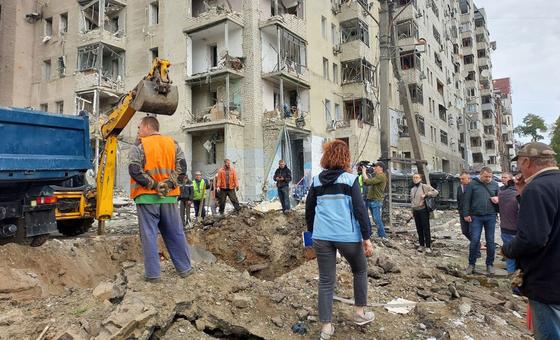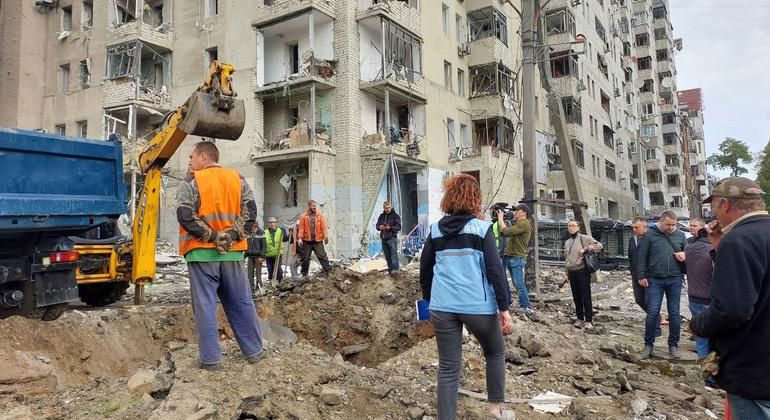
The spokesperson for the UN human rights office (OHCHR), Liz Throssell, said that people left the Kharkiv region frontline and have been forced to stay in “cold, dark basements, with no electricity” due to aerial bombardments, drone and missile strikes, and artillery shelling.
Displaced civilians
Ms. Throssell reported that many homes and civilian infrastructure have been damaged. Additionally, entire communities have been demolished, leaving more than 10,000 people displaced.
The HRMMU has said that about 35 civilians in the Kharkiv region have been killed and 137 injured since Russian armed forces launched cross-border attacks on 10 May; more than half of those killed and injured were over 60 years old and were unable or unwilling to leave their homes.
The Monitoring Mission in Ukraine has interviewed 90 displaced civilians since the 10 May attack and the team has visited many sites that were struck. Many of the interviewees recalled not being able to get shelter, and witnessing their neighbours being killed and injured.
Local authority aid
Ms. Throssell said that local authorities and volunteers are taking risks to help people get to safety. In one instance on 10 May, two medical workers, two ambulance drivers and a local official received injuries while assisting civilians in evacuating Buhaivka.
Separately, on 19 May, Russian armed forces attacked a recreation centre in the village of Cherkaska Lozova near Kharkiv city twice in 20 minutes. After visiting the site, HRMMU recorded six civilian deaths and dozens of injuries.
Under attack
To date, Kharkiv remains under attack. On Thursday, the city experienced multiple missile strikes that reportedly left seven dead and 21 injured.
Ms. Throssell said, “We call again on the Russian Federation to strictly respect all the rules of international law relating to the conduct of hostilities, and to cease its attacks on Ukraine immediately.”
She continued, “In the third year of the Russian Federation’s full-scale armed attack on Ukraine, with no end in sight, lives, homes, and futures continue to be destroyed. The long-term impact of this war in Ukraine will be felt for generations, with the task of rebuilding shattered communities, already a massive undertaking, growing larger with every further day of violence and destruction.”



